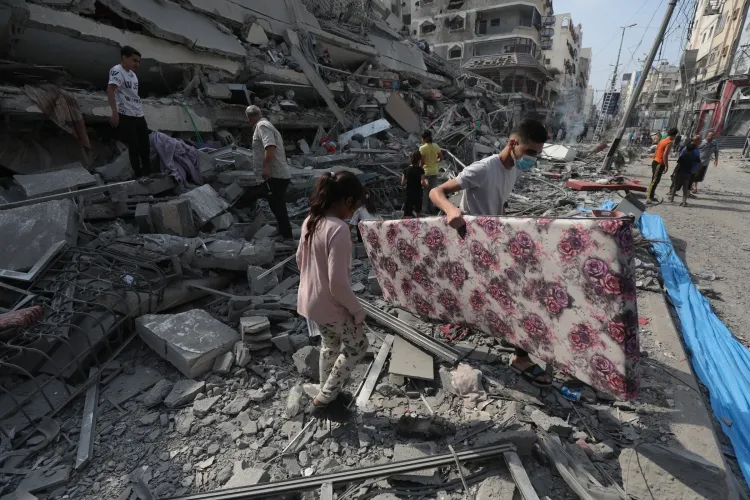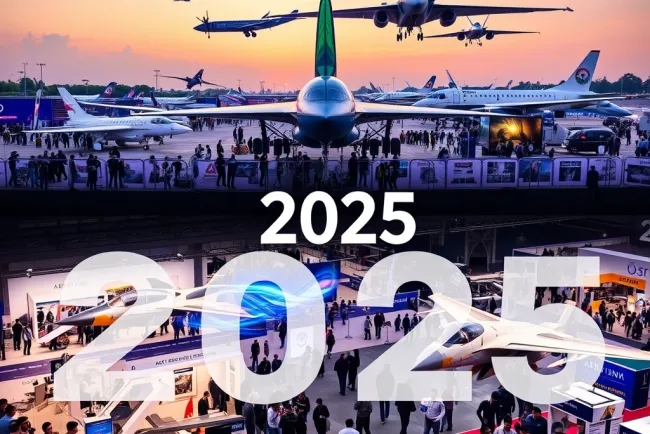Gaza's Future: Tensions Rise Amid Competing Plans for Reconstruction
As discussions intensify regarding the future of Gaza, contrasting proposals from Israel and Egypt highlight the complexity of the ongoing conflict. With Israel signaling a commitment to a U.S.-backed plan that could displace Palestinian residents, Egypt has put forth an alternative that aims to rebuild Gaza without forcing residents out.

In the wake of rising tensions in Gaza, Israeli Prime Minister Benjamin Netanyahu has expressed strong support for a U.S. proposal that envisions a transformed Gaza and the removal of Palestinian governance. This plan, articulated by former President Donald Trump, suggests a comprehensive restructuring of the region post-conflict, with no role for Hamas or the Palestinian Authority. Israel's Defense Minister, Yoav Gallant, announced intentions to create a special agency for the voluntary relocation of Gazans, further complicating the situation.
Israeli Ultimatums and Military Actions
Israeli Finance Minister Bezalel Smotrich has issued stern warnings to Hamas, demanding the surrender of weapons and a complete withdrawal from Gaza. He threatened a "total conquest" of the area if Hamas does not comply, potentially leading to severe humanitarian consequences, including a complete halt to aid, electricity, and water for the population. This rhetoric underscores the gravity of Israel's military stance and its implications for the civilian population in Gaza.
Meanwhile, U.S. Secretary of State Marco Rubio, alongside national security advisers, is engaged in discussions with Saudi Arabia's Crown Prince Mohammed bin Salman regarding the Gaza situation. The U.S. has indicated a willingness to consider viable alternatives to Trump's proposals from Arab nations, signaling an openness to dialogue and negotiation.
Egypt's Alternative Vision for Gaza
In contrast to Israel's aggressive approach, Egypt has developed a comprehensive plan aimed at rebuilding Gaza while keeping its residents in place. This proposal includes creating secure areas within Gaza and establishing a new governing body that operates independently of both Hamas and the Palestinian Authority. Additionally, it envisions a police force supported by Egyptian and Western-trained personnel to maintain order during the reconstruction process.
The reconstruction strategy proposed by Egypt is phased over five years and begins with establishing safe zones for displaced residents, equipped with mobile housing and humanitarian aid. This vision has garnered support from other Arab nations, with discussions set to take place in Riyadh to further evaluate Egypt's proposal.
Regional Reactions and the Path to Peace
The international community's response to the situation remains varied. Jordan's King Abdullah II has voiced strong opposition to the idea of displacing Palestinians, advocating for a two-state solution as the only sustainable path toward peace in the region. This sentiment reinforces the need for a comprehensive approach that prioritizes the rights and stability of Palestinian communities.
As the situation evolves, Israel is preparing to receive the bodies of four hostages from Hamas, as part of the first stage of an ongoing ceasefire agreement. Despite some releases, approximately 73 hostages remain in captivity, with half of them declared deceased in absentia by Israeli authorities. Public sentiment in Israel appears divided, with a recent poll revealing that 61% support continuing the hostage negotiation process, while a significant minority favors a return to military action.
Conclusion
The future of Gaza hangs in the balance as competing plans emerge from Israel and Egypt. The contrasting approaches—one focused on displacement and military control, the other on reconstruction and stability—highlight the complexities of the conflict and the urgent need for a sustainable solution. As regional discussions unfold, the international community must prioritize dialogue and consider the humanitarian implications of each proposed path forward. The ongoing negotiations will be critical in determining whether a peaceful resolution can be achieved or if further conflict is inevitable.
What's Your Reaction?
















